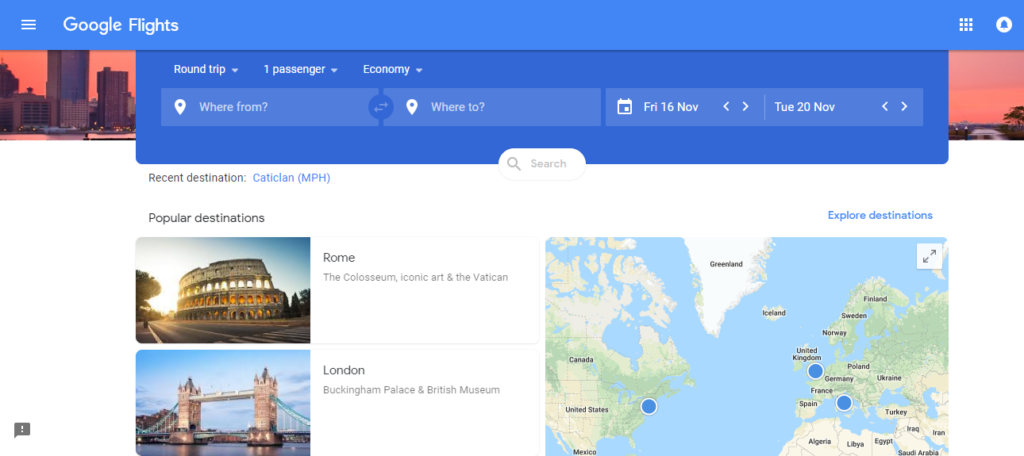There is no denying that we turn to Google when we travel. Like for me, I search the places I want to go, do research on things I can do while I’m there, and I rely on Google Maps to get around. Because of this attitude of travellers, Google is well established and further encroaching into the travel space.
However, not all travel companies are welcoming Google’s business model. The recent WiT Conference in Singapore in October was a hostile environment for the internet giant with Rod Cuthbert, former CEO and chairman of Viator and Rome2rio, urging us not to talk about Google as “they are in our faces all the time.”
The tech giant is conducting multiple launches that will take business off its OTA and metasearch rivals, such as offering exclusive hotel discounts via its Google One cloud storage platform, “hotel-plus-flight” travel packages, as well as a global price insights feature on mobile devices.

Google is gaining influence on travel’s two largest segments – flights and hotels. This is especially true for flights, where it has overtaken KAYAK in overall traffic and conversions, according to the latest research by Phocuswright.
However, it is still a relatively a small player in the hotel sector unable to beat TripAdvisor – where people search for hotels and read reviews.
Is Google really a threat?
William Bao Bean, general partner, SOSV/managing director, Chinaccelerator, described Google and Facebook as “evil” when Yeoh Siew Hoon, founder and managing director of WiT, asked him in a rapid-fire round in their session.
The concerns of travel companies are valid as Google “has a history of illegal practices”. In an exclusive interview, Bao Bean explained his bold claim on stage that the ingress of giant companies makes it hard for smaller players to thrive in the market. Google thwarts competition, he told me.
You know how you cannot delete Google apps in your Android phone even if you do not use them? In July, Google was ordered by the European Union to pay an antitrust fine amounting to EUR 4.3 billion (USD 5 billion) and to change the way it puts search and web browser apps onto Android devices. Google reportedly pushes its services in front of users through unfair contract provisions with smartphone manufacturers.
The banner and videos ads, thanks largely to its central role on Android devices, are part of the search giant’s massive business. Google said that it will challenge the ruling – but they still have to pay the fine and comply.
The fine was relatively minuscule for a massive company like Google with a reported annual revenue of USD 110.9 billion. In 2017, it earned USD 5 billion every 16 days.
Google can position its product on top of the searches, and you know how crucial it is to be on top of the search results page that many companies invest heavily in content and SEO strategies.
It is still a race
Google continues to augment its travel products and poses a serious threat to online travel agencies (OTAs). It may have the big advantage as it holds an ocean of travel data to curate the best and most personalised product for consumers.
Companies may see Google as a nemesis, but it is still a race – whoever can provide value-based and seamless experience to customers will win. Let us remember the Google products that have failed because another product is better than theirs.
- Google+: Could have been Facebook (especially with its SEO benefits)
- Google Hangouts: Beaten by a range of messaging apps like Line, Messenger, WhatsApp
- Google Wave: Similar to a problem child between Slack and Trello
There are many other products that either lack the focus or insight to work. This means that other companies, big or small, still have the chance to overtake Google.








